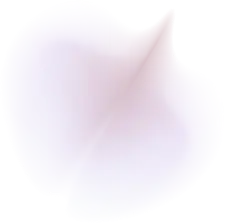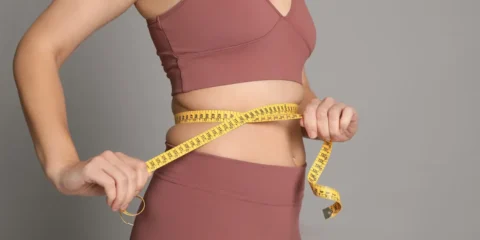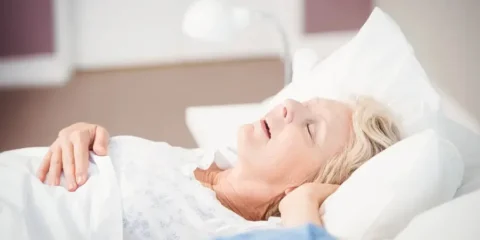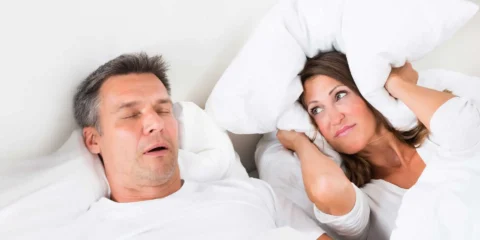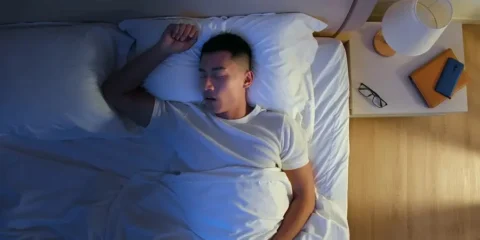An end to snoring?
Sleep is necessary for health and well-being, and we are now learning that good sleep is associated with longevity and good health.
Snoring is associated with poorer sleep, not only for the person snoring but frequently for their bed partner as well.
There are remedies to reduce snoring such as losing weight, drinking less alcohol, dental appliances, and adjusting sleep position, but what if you could walk into an office, and have a mild laser procedure performed on your airway (similar to laser hair removal) and sleep better with less snoring that night?
NightLase® is an FDA-cleared laser for treating the tissues of the airway that cause snoring. It is done without sedation, is very tolerable, and takes 30 or so minutes.
The laser uses two techniques at the same time to rejuvenate the tissues that get laxity over time and tightens up the airway.
Snoring can occur at any age, in men and women, in thin or overweight people. But they generally have one thing in common: When a snorer sleeps, their airway tissues relax and restrict airflow causing noisy breathing.
Snoring can be associated with obstructive sleep apnea, and if you are at risk for sleep apnea, there is a simple home test that you can do to see if you have apnea.
For snorers without apnea, most people will have 3 NightLase® sessions, about 2 weeks apart. For those with sleep apnea, especially severe sleep apnea, more sessions are typically needed.
If you want better sleep, it is a good idea to do some testing to get a baseline.
I use the Oura ring https://ouraring.com/ that tracks my sleep, exercise, temperature, and activity.
I also like snorelab which is an app on my smartphone that can track snoring.
Here is my story:
I did the NightLase® in 2017 when our practice first bought a couple of Fotona lasers. We intended to use them for other services, mostly facial tightening and vaginal rejuvenation, but they can also treat snoring.
At that time I did not monitor my sleep or snoring, but my wife was evident that I snore at night and she felt I had some apnea events.
I had two treatments in 2017, and my monitor (wife) said I didn’t snore much after. Over the last couple of years, I began to snore again, so it is safe to say that the results lasted about 3-4 years.
I did the snore lab app a few times in December and my average snoring was about 30% of the night.




On Wednesday, June 22nd, 2022 I did a newer protocol on our NightLase® device (Liza RN performed it).


In the week after the procedure, my snoring went down to about 10% or a 2/3 reduction in time spent snoring. June 25 was only 4 hours because I forgot to turn the app on, it doesn’t happen automatically like the Oura ring which measures sleep quality.I had been noticing on my Oura ring, that my deep sleep was declining. Typically we want to see deep and REM sleep to comprise about 50% of sleeping time, and this naturally declines with age and is associated with the development of poorer health.
Light sleep lets you rest, deep and REM sleep are restorative and this is when your body can repair and update the brain. It seems that most or all of our body’s functions do better with good deep sleep.
This is my Oura ring report the night before my most recent NightLase®:

My REM is always pretty good, but my deep sleep has been declining, and some nights I get none.
Sleep Quality:
The night after I had the NightLase® I did pretty much the same thing as the prior night. I went to bed when I was tired, and didn’t set an alarm:

I slept an extra hour, and my deep sleep was much improved. My deep sleep/REM went from 56% to 67%.
I probably waited too long to repeat NightLase®, and there is no excuse because we have 2 machines. In the future I am going to be more intentional about monitoring my sleep and snoring levels.
Longevity and health require one to be taking care of every aspect of their health. This not only involves eating right and exercising, but also getting good sleep.
In prior blogs, we reviewed how reversing poor sleep led to better adherence to healthy eating and exercise, so these three pillars are measurable, can be acted upon, and are necessary for good quality of life.
We typically suggest 3 NightLase® sessions for the first time for anything more than mild snoring, and then once every 1-2 years after that for maintenance. The results decline for the simple reason that we continue to age, so we more or less progress with aging in all aspects of health.
If you don’t know how your sleep is doing, smart watches or the Oura ring can answer for you. We like to have the SnoreLab results before NightLase® for mild snorers. For more severe snoring or those with risk factors for apnea, we use the WatchPat home apnea testing device before the procedure so we have a baseline and can guarantee results.
Dr Charles Mok



